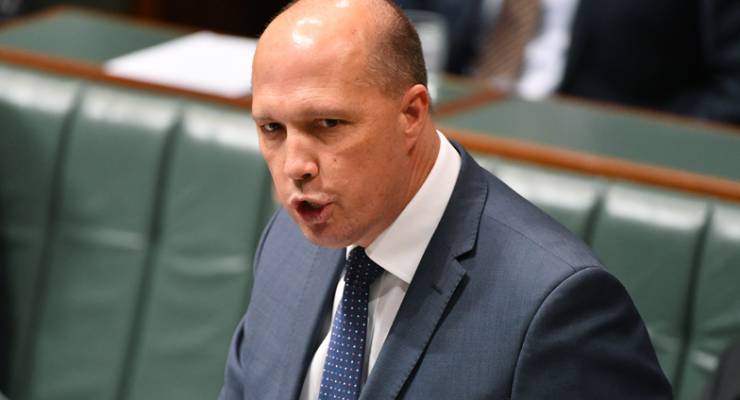
Whether company CEOs should be commenting on social policy seems to depend on whether you agree with them or not. Immigration Minister Peter Dutton, a vociferous opponent of marriage equality, expressed outrage on the weekend that CEOs would openly support it and want the issue dealt with.
It’s hard to imagine he would have even bothered commenting, except perhaps in glowing terms, if CEOs had instead opined that because the issue was a distraction from the economic challenges facing Australia, it should be dropped from public and political debate.
And it’s hard to imagine CEOs would have received support for their right to speak out from progressives on social media, had those CEOs expressed this latter position. Instead they would have been savaged. It’s rather like the criticism that used to be directed at Cardinal George Pell for articulating conservative social positions or denying the existence of climate change, which strangely vanished when he criticised the Howard government’s WorkChoices. Suddenly, Pell was a welcome participant in such debates.
Nor does it help, as Dutton argued (generously allowing that he is capable of making a coherent argument) that CEOs should “stick to their knitting”, or that they should make clear they speak as individuals, not as corporate representatives. CEOs’ contributions to debate on economic and regulatory matters are accepted as justified; if social issues affect a company’s employees in a material way, then the same logic applies. No one expects religious groups to confine their public views to theology; social policy and social justice are logical extensions of their areas of interest. Matters affecting companies and employees are similarly reasonably issues for companies to discuss. And that covers pretty much everything. “Sticking to your knitting” allows you to bootstrap your way into any debate.
[How 18C actually protects free speech]
Dutton also tried to have it another way, suggesting companies “are morally coerced into supporting campaigns in fear of being extorted by an online social media push to boycott their product”. That’s an extraordinary claim about the power of social media. Strange that companies aren’t being forced to pay a proper level of tax or remunerate their workers properly through sheer terror of being burnt on Twitter. It also sits poorly with the persistent (and I’d argue more correct) complaint from the right about social media being a meaningless echo chamber unconnected to “ordinary Australians”. Twitter — simultaneously irrelevant and capable of controlling multinationals.
Perhaps the minister was thinking of the fate of Coopers, which found itself thrown into the deep end of the same-sex marriage debate and scrambled out in a panic to release a hostage video-style apology declaring support for marriage equality. The problem is, opponents of marriage equality (who also tend to be supporters of removing 18C) insist that the right to free speech is under threat, while demonising not merely the free speech of CEOs offering opinions they disagree with, but that of people who boycott companies they object to. Boycotts are free speech; Coopers drinkers have a perfect right not to consume its products and urge others to do the same.
[Razer: boycott Coopers all you want, it won’t end homophobia]
But for a country that has been pretending to debate free speech and its limits for several years now — primarily because a group of powerful old white men want the unfettered right to abuse people with less power than themselves — we’re remarkably shallow in our grasp of the issues. It doesn’t count to support free speech you agree with. It only counts when it’s speech you object to. Debating marriage equality may be offensive to same-sex marriage advocates, but it’s free speech. And boycotting Coopers was irrational and a poor way to advocate for marriage equality, but it’s still free speech, not “extortion.” Companies lobbying for tax cuts are guilty of hypocrisy, lies and naked self-interest, but it’s still free speech. Peter Dutton attacking CEOs for espousing views he disagrees with is inconsistent and primarily designed to burnish his leadership credentials with the right of his party, but it’s still free speech.
Supporting free speech means supporting people you can’t stand, expressing views you can’t stand. In fact that’s the only meaningful time to support free speech. And there’s very little of it in Australia, on any side.








Crikey is committed to hosting lively discussions. Help us keep the conversation useful, interesting and welcoming. We aim to publish comments quickly in the interest of promoting robust conversation, but we’re a small team and we deploy filters to protect against legal risk. Occasionally your comment may be held up while we review, but we’re working as fast as we can to keep the conversation rolling.
The Crikey comment section is members-only content. Please subscribe to leave a comment.
The Crikey comment section is members-only content. Please login to leave a comment.